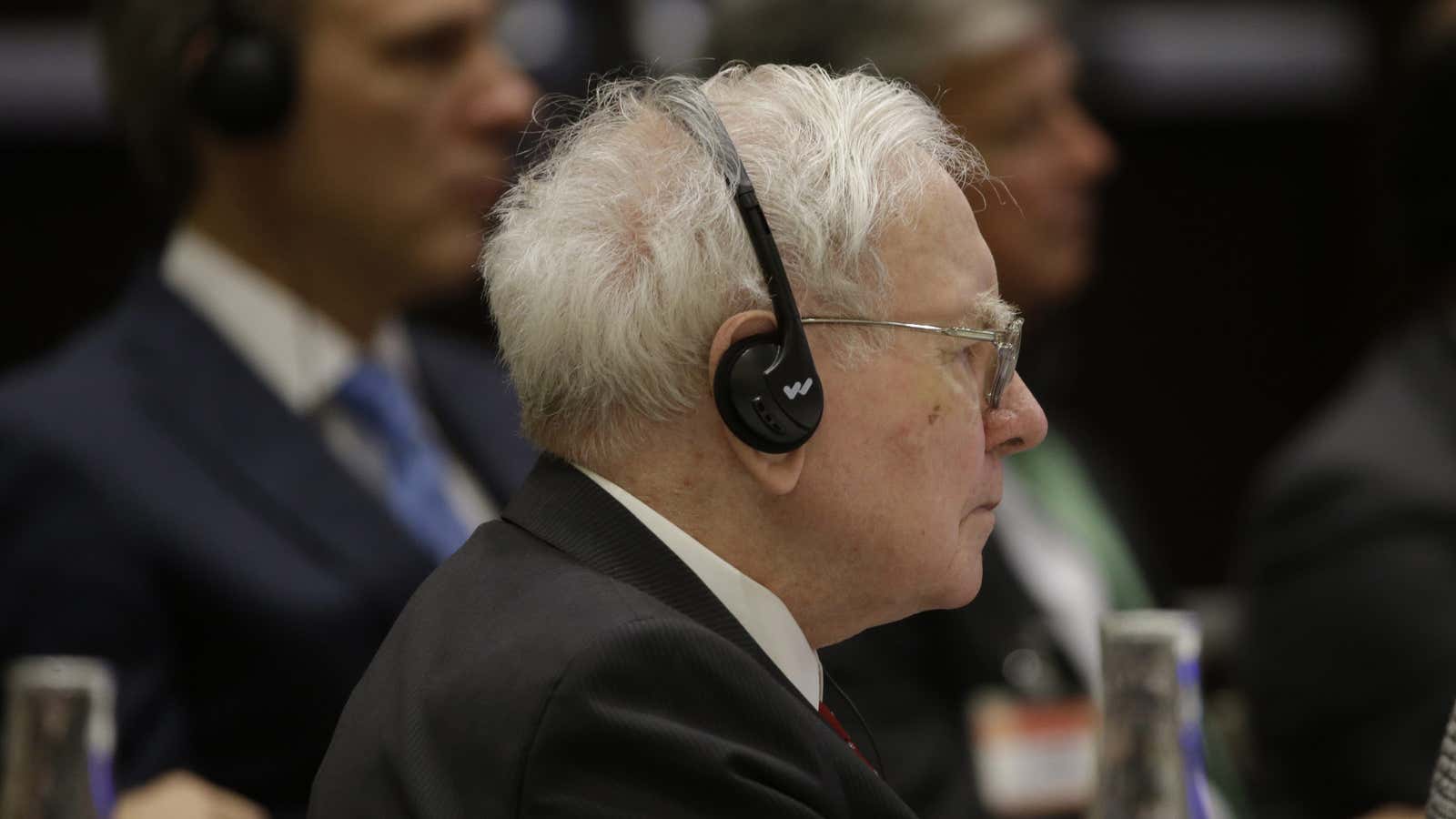The company run by the world’s most famous value investor, Warren Buffett, built up a position in Apple worth roughly $1 billion in the first quarter of 2016. The investment is yet another sign that the iPhone maker’s days of explosive growth might be permanently fading into the past.
Buffett’s Berkshire Hathaway specializes in an investment strategy known as “value investing,” pioneered by his mentor Benjamin Graham in the first half of the 20th century. Value investors, and Berkshire specifically, buy and hold the stocks of companies with strong cash flow, decent dividends, defensible businesses and experienced management at moments when they’ve fallen out of favor with the market.
That describes Apple perfectly. Apple’s shares are down 12% so far in 2016 and 28% over the last 12 months. By comparison, the S&P 500 index is up 0.5% and down a bit more than 3% over the same time periods.
Slowing sales of the iPhone have been driving Mr. Market’s dismay with Apple, along with a general sense that the company has become somewhat boring. Recent product launches have underwhelmed, offering iterations and optimizations of its existing portfolio rather than gadgets that create big new categories.
So, for Apple shareholders, who’ve watched some $250 billion in paper wealth vaporize over the last year, Berkshire’s investment is good news, helping to put a floor under the stock. The shares are up more than 2.5% this morning.
Of course, Berkshire Hathaway’s stake is actually just an acknowledgement of the direction Apple has been heading in for years under CEO Tim Cook. Since taking the helm in 2011, Cook has essentially been tasked with managing the transformation of Apple from a fast-growing company seemingly immune to the law of large numbers, to a more stately—but still incredibly profitable—corporate powerhouse that consistently showers shareholders with dividends and buybacks.
Now, Apple is joining the ranks of the high-quality, if somewhat sleepy, clutch of corporations Berkshire has owned for decades, including Coca-Cola and IBM. There are worse fates.
